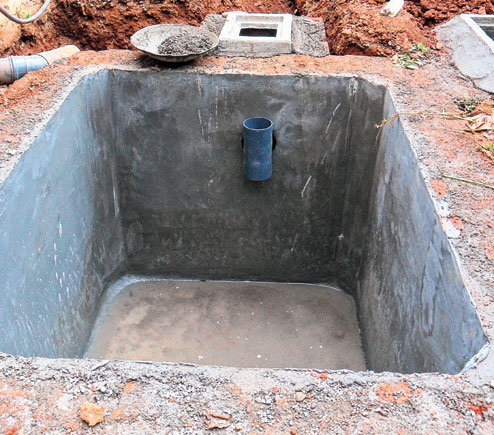
Bhubaneswar, May 6: The city administration is set to implement the revised septage management rules, the failure to follow which would invite heavy fines.
In April, the state housing and urban development department had formulated the regulations and communicated them to respective urban local bodies, including Bhubaneswar Municipal Corporation (BMC), to implement them. The BMC has been asked to form a committee, following which the rules would be implemented in the city.
The new rules mandate that every household in the city have a septic tank of its own and that it cannot discharge waste or sludge into the municipal drains. The owner of the premises connected to the septic tank should be responsible for its operation and maintenance.
The rules empower the civic body officials to conduct regular inspection of septic tanks in every household and levy fines on violators. Anyone found to have not undertaken proper management of septic tanks would be fined up to Rs 1,000. If the violation continues, Rs 500 would be charged every day from the next inspection.
According to the new plan, the design, construction and installation of septic tanks should be in accordance with provisions of the National Building Code of India of 2005. The owner of the premises should ensure regular check of the tanks and ensure that the septage or slush accumulated in septic tanks is not discharged into the drains.
Sailasree Vihar resident Jivan Sahoo, an environmentalist, said: "If the civic body could firmly implement the rules, it will ensure a healthy and unpolluted environment for the citizens. The officials should also ensure to make the city free from open defecation."
The rules add that owners would have to call the civic body officials or other registered sanitary agencies for cleaning septic tanks. It says that no one should carry out manual cleaning of the tanks. The sanitary workers or the agency would be entitled to collect user charges for cleaning the septic tanks and treatment of the waste.
Sources in the housing and urban development department said earlier, the urban local bodies were following the sanitation strategy formed in 2011.
"This is for the first time that the state has formulated a separate guideline for septage management. This came following the frequent outbreaks of jaundice in various parts of state, the cause of which at most places turned out to be faecal contamination," said the official.
In March, chief secretary Aditya Prasad Padhi had held a high-level meeting for formulation and implementation of the new guideline for septage management. At this meeting, it was found that only two per cent of liquid waste was treated while the remaining 98 per cent was unsafely disposed on the ground and surface water bodies.
In that meeting, it was also decided to have a separate septage treatment plant in the city where sludge could be treated in an anaerobic digester and liquid could be treated in anaerobic baffled reactor and planted gravel filter. The treated sludge and effluents could be reused in horticulture and other similar purposes. The BMC needs nearly an acre of land to set up the plant.
A senior civic body official said a committee would be formed shortly to discuss the modalities for implementing the new septage management guidelines, including the treatment plant.
"Our officials are already taking efforts to make the city free from open defecation by distributing work orders to slum dwellers for construction of household latrines. Our committee will discuss the new septage management plan and things will be decided after that," said the official.
NEW RULES AND POCKET PINCH FOR VIOLATION
YOU’LL BE A VIOLATOR IF...
• you fail to comply with any provision
• refuse to comply with any notice served on violation
• obstruct, hinder or interfere with an official enforcing the rules
• resorts to manual cleaning of septic
TANKS
• engage in unauthorised operation of equipment used in septage management
• transportation of septage without valid registration
• rischarge untreated septage into corporation drains
HEAVY PENALTY (IN RS)
• For violation of rules: 1000
• Ignore notice and continue to violate rule: 500 per day since second inspection
• Residential buildings without septic tanks: 5000
• Commercial buildings without septic tanks: 15000
• Manual cleaning of septic tanks: 5000
• Unauthorised operation of equipment: 5000
• Transportation of human waste without registration: 5000
• Improper disposal or untreated discharge of waste: 5000
• Improper discharge at treatment plant: 15000
ROLE OF CIVIC BODY
• Undertake awareness activities to let people know about rules
• Ensure regular inspection of septic tanks of households
• Maintain data on households with septic tanks
• Keep record of buildings and structures that have de-sludged their septic tanks
• Maintain data about volume of waste generated, treated and disposed of
• Keep data about septage transporter, including operator in-charge
• Keep note of public grievances










